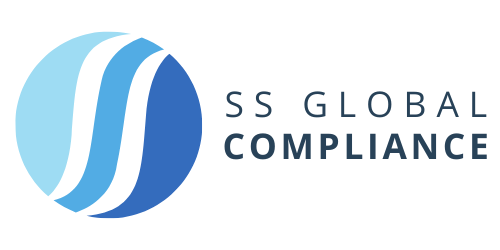Restriction of Hazardous Substances (RoHS) – Introduction
RoHS Certification is a mandatory requirement for electrical and electronic equipment (EEE) manufacturers and suppliers to demonstrate compliance with the Restriction of Hazardous Substances (RoHS) Directive. This directive limits the use of specific hazardous materials to ensure environmental safety and protect human health. Originally introduced by the European Union, RoHS compliance has been adopted globally, emphasizing eco-friendly production practices and safer product disposal.
What is RoHS Certification?
RoHS Certification confirms that a product complies with the restrictions set by the RoHS Directive on hazardous substances. It is applicable to electrical and electronic equipment sold in markets where RoHS compliance is required, particularly the European Economic Area (EEA). The RoHS directive limits the use of 10 restricted substances in products, ensuring they are safe for consumers and the environment.
RoHS Certification is crucial for market access, legal compliance, and building consumer trust in energy-efficient, eco-friendly products.
Substances Covered Under RoHS
RoHS restricts the use of the following 10 hazardous substances in electrical and electronic equipment:
- Lead (Pb): Max 0.1%
- Mercury (Hg): Max 0.1%
- Cadmium (Cd): Max 0.01%
- Hexavalent Chromium (Cr6+): Max 0.1%
- Polybrominated Biphenyls (PBB): Max 0.1%
- Polybrominated Diphenyl Ethers (PBDE): Max 0.1%
- Bis(2-ethylhexyl) phthalate (DEHP): Max 0.1%
- Butyl benzyl phthalate (BBP): Max 0.1%
- Dibutyl phthalate (DBP): Max 0.1%
- Diisobutyl phthalate (DIBP): Max 0.1%
Exempted Products Covered Under RoHS
Certain products and applications are exempted from RoHS compliance due to technical and functional requirements:
- Equipment used in military or national security.
- Large-scale stationary industrial tools.
- Large-scale fixed installations.
- Radioactive waste
- Transportation equipment, including automobiles and aircraft.
- Medical devices and monitoring/control instruments under specific conditions.
- Spare parts for repairing equipment placed on the market before the RoHS Directive took effect.
- Batteries
Process of RoHS Certification
Achieving RoHS certification involves the following steps:
- Product Evaluation
- Identify whether your product falls under the scope of RoHS regulations.
- Testing
- Conduct hazardous substance testing in a RoHS-certified laboratory to ensure compliance with permissible limits.
- Document Preparation
- Prepare the required technical documentation, including the Declaration of Conformity (DoC) and test reports.
- Application Submission
- Submit the application along with the test reports and supporting documents to the certification body.
- Verification
- The certification body evaluates the product and submitted documents for compliance.
- Certification Issuance
- Upon successful verification, the product receives RoHS Certification, confirming its compliance.
Required Documents for RoHS Certification
To obtain RoHS Certification, the following documents are typically required:
- Product Description
- Technical specifications and design details.
- Bill of Materials (BOM)
- Comprehensive list of all components and materials used in the product.
- Test Reports
- Laboratory test reports confirming compliance with RoHS limits.
- Declaration of Conformity (DoC)
- A self-declaration affirming that the product complies with RoHS standards.
- Manufacturer or Importer Details
- Company name, address, and registration documents.
- Supplier Declarations
- Certificates or declarations from component suppliers ensuring compliance.
Timeline and Renewal
- Timeline for Certification: The RoHS certification process generally takes 2-4 weeks, depending on product complexity and testing requirements.
- Renewal Requirements: RoHS certification does not require periodic renewal; however, compliance must be maintained for all subsequent batches of the certified product. If the product design or material changes, re-certification may be necessary.
How We Help for Your RoHS Certification?
Navigating the RoHS certification process can be challenging. Our expert team offers comprehensive support to ensure smooth certification:
- Product Assessment
- Evaluate whether your product falls under the scope of RoHS compliance.
- Testing Assistance
- Coordinate with certified laboratories for product testing and ensure accurate results.
- Documentation Support
- Prepare all necessary documents, including test reports and the Declaration of Conformity (DoC).
- Application Submission
- Submit your application to the certification body and handle any queries or clarifications.
- Ongoing Compliance Monitoring
- Provide guidance to maintain compliance for future production batches and handle changes in product design.
Contact Us Today!
Ensure your products meet global safety and environmental standards with our hassle-free RoHS Certification services. Let us help you access international markets and enhance your brand’s reputation!
